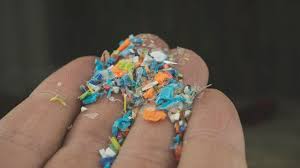
Northeastern University researchers have developed an innovative bioplastic that breaks down in water, offering a sustainable alternative to conventional plastic. Called MECHS, which stands for Mechanical Engineered Living Materials with Compostability, Healability and Scalability, this plastic is derived from engineered E. coli bacteria and a fiber matrix, creating a film-like material that biodegrades faster than other biodegradable plastics. The study was recently published in Nature Communications.
“The kind of impact that human-made materials are making on the living world is resulting in climate change, pollution and more”
Dr. Avinash Manjula-Basavanna
Engineered Living Materials (ELMs)
Materials created using genetically modified organisms, such as bacteria, to produce specific functional properties, allowing for regeneration, self-healing, or responsiveness to environmental stimuli.
Innovative properties enable diverse uses
Designed for strength and flexibility, MECHS mimics many features of conventional plastics while introducing unique properties. It can be stretched like plastic wrap, customized for strength by adding proteins or peptides, and repaired with a small amount of water. MECHS dissolves in large quantities of water or decomposes quickly in compost, making it particularly suited to applications like detergent pods, packaging and other “primary packaging” that protects items such as electronics.
Unlike many biodegradable materials, MECHS can be produced at scale through processes similar to paper manufacturing. This scalability addresses a major limitation of previous engineered living materials, which were difficult to produce in large quantities. The researchers believe MECHS could reduce plastic pollution by replacing common short-use plastic products. Since nearly a third of the global plastic market consists of packaging, MECHS could provide a sustainable solution for a large segment of plastic waste.
“Right now we use a lot of conventional nonbiodegradable plastics for applications they don’t need to be used in at all. If we replace that with our plastic, you could just flush it down the toilet and it would biodegrade.”
Dr. Neel S. Joshi





